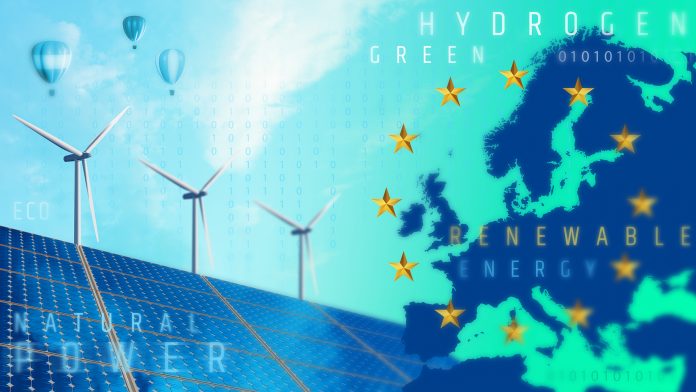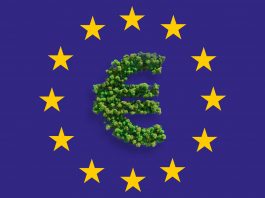The European Commission has proposed a novel plan to ensure European independence from Russian fossil fuels.
The European Commission’s proposal – known as REPowerEU – outlines a strategy to attain European independence from Russian fossil fuels before 2030, beginning with gas.
REPowerEU: Affordable and sustainable energy
The plan lays out a number of measures in response to rising energy prices across Europe and the need to replenish gas stocks for winter. Europe has been coping with increased energy prices for several months, but now supply uncertainty is intensifying the problem.
REPowerEU aims to diversify gas supplies, fasten the implementation of renewable gases and replace gas in heating and power generation. This can decrease EU demand for Russian fossil fuels – particularly gas – by two thirds before the end of the year.
A shifting geopolitical landscape
The changing geopolitical situation and energy market has necessitated a drastic acceleration of the clean energy transformation and heightened the urgent need for Europe to attain energy independence from unreliable suppliers and volatile fossil fuels, particularly from Russian fossil fuels.
Following the invasion of Ukraine, the case for a rapid clean energy transition has never been more crucial. Currently, the EU imports 90% of its gas consumption, with Russia providing around 45% of those imports, in varying levels across Member States. Russia also accounts for around 25% of oil imports and 45% of coal imports.
Gaining independence from Russian fossil fuels
Commission President Ursula von der Leyen commented: “We must become independent from Russian oil, coal, and gas. We simply cannot rely on a supplier who explicitly threatens us. We need to act now to mitigate the impact of rising energy prices, diversify our gas supply for next winter and accelerate the clean energy transition.
“The quicker we switch to renewables and hydrogen, combined with more energy efficiency, the quicker we will be truly independent and master our energy system. I will be discussing the Commission’s ideas with European leaders at Versailles later this week, and then working to swiftly implement them with my team.”
Renewable energy future
Executive Vice-President for the European Green Deal, Frans Timmermans added: “It is time we tackle our vulnerabilities and rapidly become more independent in our energy choices. Let us dash into renewable energy at lightning speed.
“Renewables are a cheap, clean, and potentially endless source of energy and instead of funding the fossil fuel industry elsewhere, they create jobs here. Putin’s war in Ukraine demonstrates the urgency of accelerating our clean energy transition.”
Securing fuel supplies
Commissioner for Energy, Kadri Simson, concluded: “Russia’s invasion of Ukraine has aggravated the security of supply situation and driven energy prices to unprecedented levels. For the remaining weeks of this winter, Europe has sufficient amounts of gas, but we need to replenish our reserves urgently for next year.
“The Commission will therefore propose that by 1 October, gas storage in the EU has to be filled up to at least 90%. We have also outlined price regulation, state aid and tax measures to protect European households and businesses against the impact of the exceptionally high prices.”
The Commission believes it is possible to phase out its reliance on Russian fossil fuels well before 2030. In order to achieve this, the Commission’s REPowerEU plan will increase the resilience of the EU-wide energy system based on two pillars:
- Diversifying gas supplies, via higher Liquefied Natural Gas (LNG) and pipeline imports from non-Russian suppliers, and larger volumes of biomethane and renewable hydrogen production and imports.
- Reducing faster the use of fossil fuels in homes, buildings, industry, and power system, by boosting energy efficiency, increasing renewables and electrification, and addressing infrastructure bottlenecks.
The Commission has explained that it will work alongside Member States to identify the most suitable projects to meet these objectives, building on the extensive work done already on national Recovery and Resilience Plans.









